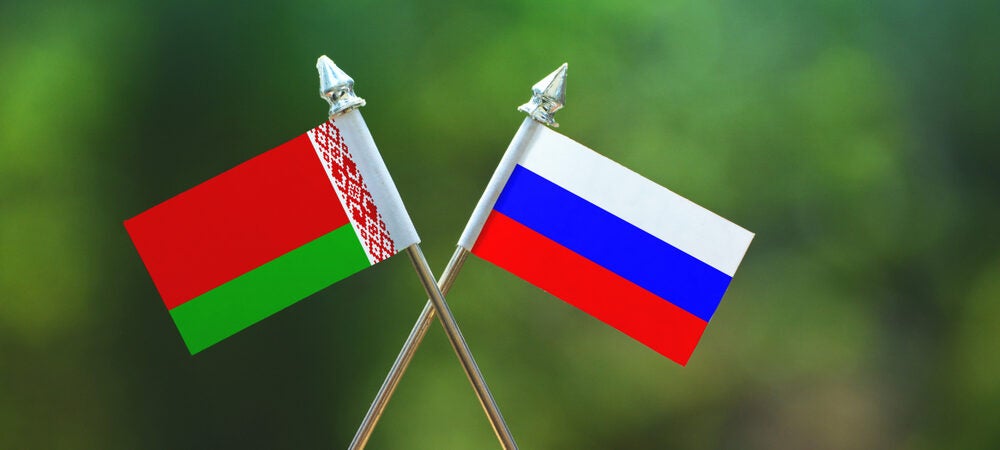In prior posts, I reviewed the joint statement by G-7 countries on their intention to suspend most favored nation treatment on Russia and stop the accession process into the WTO for Belarus in light of the ongoing conflict in Ukraine as well as actions to ban imports of petroleum and coal products and other economic sanctions.
Canada, a G-7 member, took action first, both banning imports of oil and applying 35% tariffs to other imports from Russia and Belarus.
The United Kingdom has also taken action on revoking MFN treatment of Russian goods.
In the European Union, action has been announced denying most favored nation status to Russia. The European Commission provided the following question and answer about denying Russia MFN treatment.
“What are the consequences of denying Russia most-favoured-nation (MFN) status?
“Removal of MFN status means suspending the benefits that come from being a WTO Member, more specifically the benefit of not being discriminated against by other Members. For example, MFN treatment guarantees that a Member will not be subject to higher tariffs than other Members, or to import bans that do not apply to other Members. Suspension of MFN treatment means that the Member concerned – in this case Russia – may be subject to higher tariffs and import bans.
“The EU has decided to act not through an increase on import tariffs, but through set of sanctions that comprise bans on the imports or exports of goods, as this is much quicker and more effective than preparing a completely new tariff schedule from scratch.
“In practice, the EU has already removed a number of trade benefits that Russia previously enjoyed through the imposition of sanctions. Additionally, the EU has restricted the provision of SWIFT financial services to certain Russian banks, which constitutes a disapplication of MFN vis-à-vis Russia under the General Agreement on Trade in Services (GATS). Todayʼs sanctions remove further trade benefits from Russia.”
In the United States, the President through executive order has restricted exports of luxury goods and many other items to Russia and Belarus and banned imports of oil, gas, coal and a number of other products reviewed in earlier posts.
Such actions constitute treating Russia and Belarus differently (though Belarus is not a WTO Member and hence not entitled to MFN treatment by reason of WTO membership). To formally remove most favored nation treatment from Russia in the U.S., Congress must act. On Thursday, March 17, 2022, the House of Representatives passed a bill that would, inter alia, deny MFN treatment to Russia and Belarus and encourage USTR to take other actions at the WTO to block forward movement on Belarusʼ accession to the WTO and urge other WTO Members to similarly deny MFN treatment to Russia.
The vast majority of imports from Russia are oil and gas products ($17.4 billion of $29.7 bill total imports in 2021) which already banned by Executive Order. Other products (worth about $1.5 billion) have also been banned by Executive order. Of the remaining imports the following fourteen 4-digit HS categories accounted for $8.14 billion of the imports from Russia in 2021.
HS7110 PLATINUM $ 2,449,856,890
HS7201 PIG IRON AND SPIEGELEISEN IN PIGS, BLOCKS OR OTHER PRIMARY FORMS $1,157,617,274
HS7207 SEMIFINISHED PRODUCTS OF IRON OR NONALLOY STEEL $886,744,073
HS3102 MINERAL OR CHEMICAL FERTILIZERS, NITROGENOUS $723,784,769
HS2844 RADIOACTIVE CHEMICAL ELEMENTS AND ISOTOPES AND THEIR COMPOUNDS $669,931,951
HS7601 ALUMINUM, UNWROUGHT $423,969,585
HS7202 FERROALLOYS $419,659,133
HS3104 MINERAL OR CHEMICAL FERTILIZERS, POTASSIC $366,158,625
HS4412 PLYWOOD, VENEERED PANELS AND SIMILAR LAMINATED WOOD $345,745,434
HS9306 BOMBS, GRENADES, TORPEDOES, ETC., AMMO $173,633,545
HS7106 SILVER (INCLUDING SILVER PLATED WITH GOLD OR PLATINUM) $144,208,220
HS8412 ENGINES AND MOTORS NESOI, AND PARTS THEREOF $133,429,434
HS8108 TITANIUM AND ARTICLES THEREOF, INCLUDING WASTE AND SCRAP $130,833,908
HS4002 SYNTHETIC RUBBER AND FATICE IN PRIMARY FORMS, ETC. $114,129,678
For three of the 14 categories, the column 2 rate is duty free just like the column 1 rate — HS7110, HS3102, HS 3104. For three others, column 2 rates range free to 45% (HS2844, HS8108) or 65% (HS7106. The other 8 categories had column 2 rates that were all above free and generally substantially higher than column 1 rates.
HS 7201, column 2 rates rom 2.5% to $1.10/tonHS7207, 20%
HS7601, 10.5-25%
HS7202, 6.5-35%; up to 6.6cents/kg. HS4412, 40-50%
HS 9306, 30-45%
HS8412, 27.5-35%
HS4002, 20%.
When the legislation becomes law (likely by end of March), the higher column 2 rates will apply to all imports from Russia and Belarus not banned from entry. For those categories that would remain duty free under column 2, President Biden will have the authority to raise rates (actually he will have the authority to raise rates on any products from the two countries).
While the trade actions outlined above are but one part of a much broader set of sanctions imposed by many trading partners, they add to the breadth of sanctions being imposed in light of the unprovoked invasion of Ukraine by Russia and the complicity of Belarus. The sanctions will remain in place and will likely continue to be increased until Ukraineʼs sovereignty is respected, Russian troops (and various mercenaries brought in by Russia) withdrawn and a freely elected Ukrainian government either remains in place or is elected.
Terence Stewart, former Managing Partner, Law Offices of Stewart and Stewart, and author of the blog, Current Thoughts on Trade.
To read the full commentary from Current Thoughts on Trade, please click here

